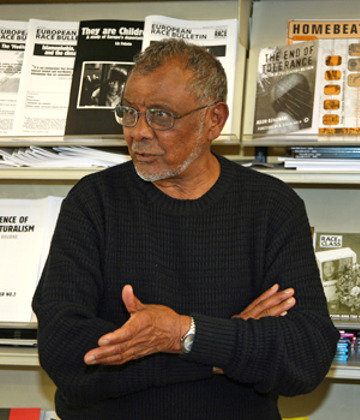At the Interstices of Race, Class and Imperialism: A. Sivanandan (1923-2018)
Ambalavaner Sivanandan, who has died aged 94 in London on 3 January 2018, was an organic intellectual working at the interstices of race, class and imperialism. A skillful essayist and gripping orator, he chiselled powerful idioms and imagery which travelled across his writing, and from his speeches to his writing, and back again. His prose was crafted not so much to be read quietly, as recited aloud.

What animated him, in contrast to liberal-left academics and media commentators of colour fixated by issues of representation and privilege, was the question: “… what is it in the black and Third World experience, in the experience of the oppressed and exploited, that gives one the imagination to see other oppressions and the will to fight for a better society for all, a more equal, just, free society, a socialist society?”1
Sivanandan – probably in the spirit of an exasperated Karl Marx who against some of his followers once protested “[if they are Marxists], then I am not” – spurned that identification. He believed Marxism to be hidebound by its European origin and ossified by its adherents into a secular dogma or faith: more hindrance than help, in seeing and acting upon, a constantly revolutionising capitalism. Still he recorded his debt to Marx, through whom he found “… a way of analysing my own society, a way of resolving my own social contradictions, a way of understanding how conflict itself was the motor of one’s personal life as well as the combusting force of the society in which one lived.”2
Initially he appeared attentive to the radicalism of the women’s liberation movement, noting in 1973 its potential for the clarification of issues of working class and black struggle in “The Colony of the Colonised: Notes on Race, Class and Sex.”3 However, he was distanced from feminism, thinking it to be captured by middle-class women for the extension of their own rights, rather than for social change for those women and men whose freedoms are most trammelled.
...
Keine Kommentare:
Kommentar veröffentlichen